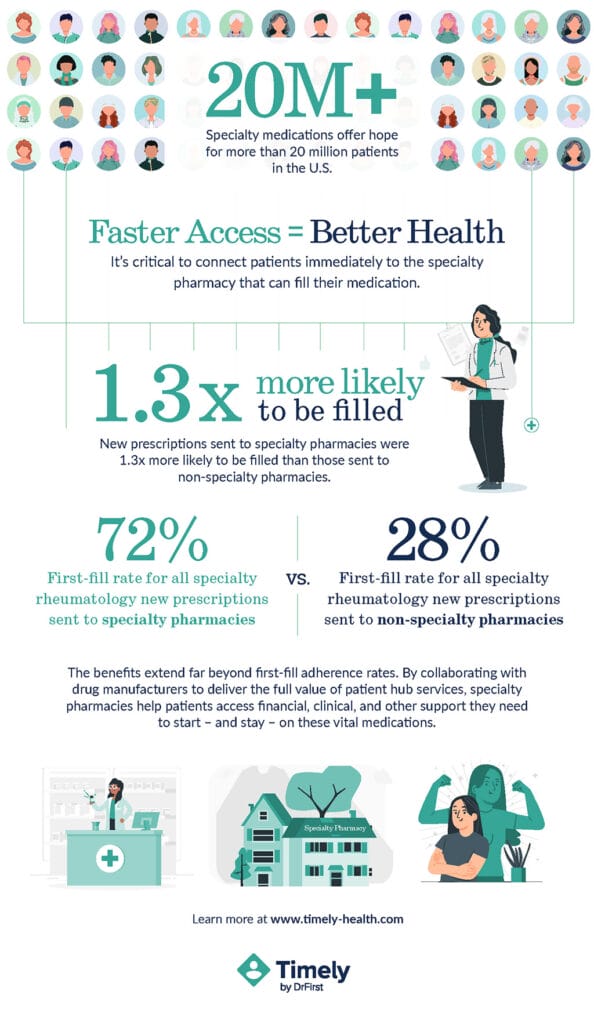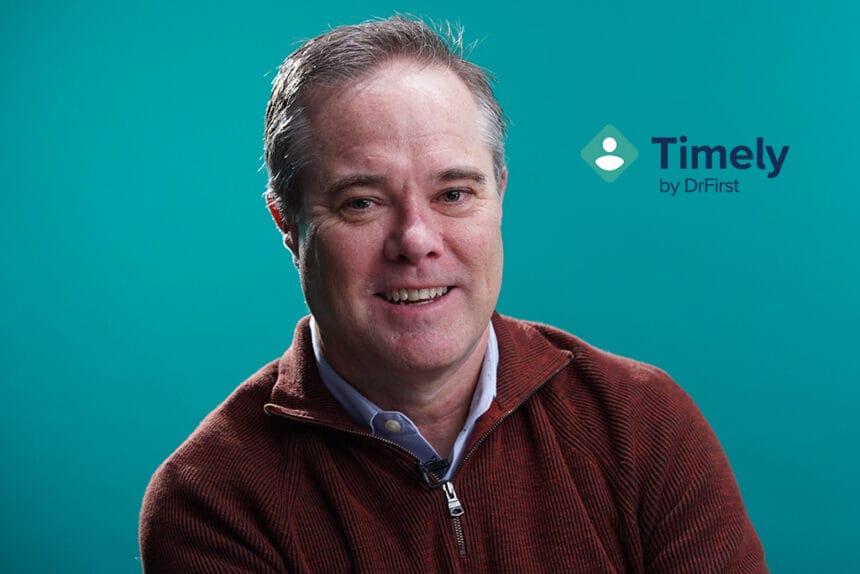While specialty medications offer hope to the more than 20 million Americans currently taking them for complex health conditions, getting that first prescription filled can cost what these patients can least afford: time.
For those with life-threatening or life-changing disorders, the sooner therapy starts, the better the prognosis. Yet, the very nature of these high-cost medications means they come with a fair number of requirements, including prior authorizations, administrative rules and financial interventions, to name a few. Even when everything goes well, the process can take days — and several weeks or more when it doesn’t.
The speed of the first prescription fill sets the pace of a patient’s healing journey and can influence whether they stay on course with therapy or abandon treatment before it even begins. That is why it’s especially important to connect patients immediately with the appropriate specialty pharmacy that can fill their medication. In fact, specialty pharmacies are typically the only ones that can dispense these medications due to limited distribution networks and the high touch they require for storage, handling and patient support.
Beyond playing a key role in patient access at the start of therapy, specialty pharmacies become increasingly important to adherence and outcomes as the treatment plan continues, providing comprehensive support in coordination with manufacturer-sponsored patient “hubs.”

As the pharmaceutical industry considers which digital solutions can best improve patient access to specialty drugs, data insight from Timely by DrFirst makes a strong case for tools that connect patients to specialty pharmacies right away — immediately after the provider orders the medication, in fact.
When we compared first-fill rates among patients prescribed a particular rheumatology biologic medication from September through December 2023, we found prescriptions sent to the appropriate specialty pharmacies were 1.3 times more likely to be filled than those sent to non-specialty pharmacies.
Our analysis factored in all the prescriptions written for the specialty medications in this therapeutic category, revealing a nearly 3:1 ratio between first fills sent to specialty pharmacies (72%) as opposed to non-specialty pharmacies (28%). While that may seem like good news at first glance, it’s concerning that more than a quarter of prescriptions for these high-touch, high-cost specialty medications are sent to non-specialty pharmacies that are unlikely or unable to fill them.
For patients, that means more waiting while the prescriber writes a new prescription, more anxiety and uncertainty while they wait to get connected with a specialty pharmacy and more time for their condition to progress. The data validates what our long history in e-prescribing and expertise in specialty medications tells us: closing the adherence gap for patients starts by getting them connected quickly and accurately to a specialty pharmacy.
For pharmaceutical brands, the benefits extend far beyond first-fill adherence rates. Getting patients connected to hub services often starts by getting the prescription to the right pharmacy. By collaborating with drug manufacturers to deliver the full value of hub services, specialty pharmacies help patients access financial, clinical and other support they need to start — and stay — on these vital medications.
Timely by DrFirst is a personalized mobile communication experience that works to improve medication adherence in partnership with life science brands. Built on the strength of e-prescribing pioneer DrFirst’s EHR integration, Timely extends the reach of prescribers to support the patient journey where and when it matters most — at the point of inception, when a patient is making the decision to start and maintain treatment.
To learn more about how Timely can improve adherence and engagement for your organization, please contact: 888-271-9898 | [email protected] | www.timely-health.com







